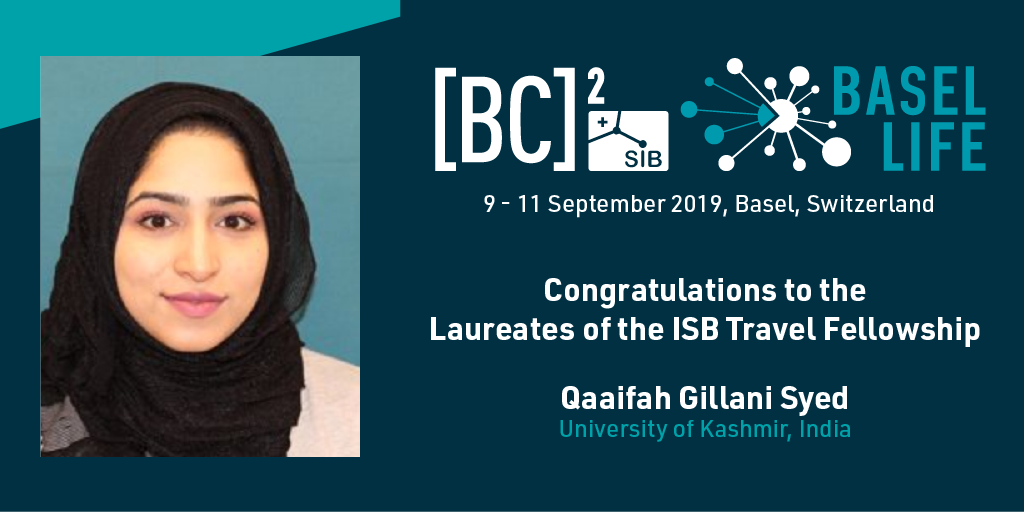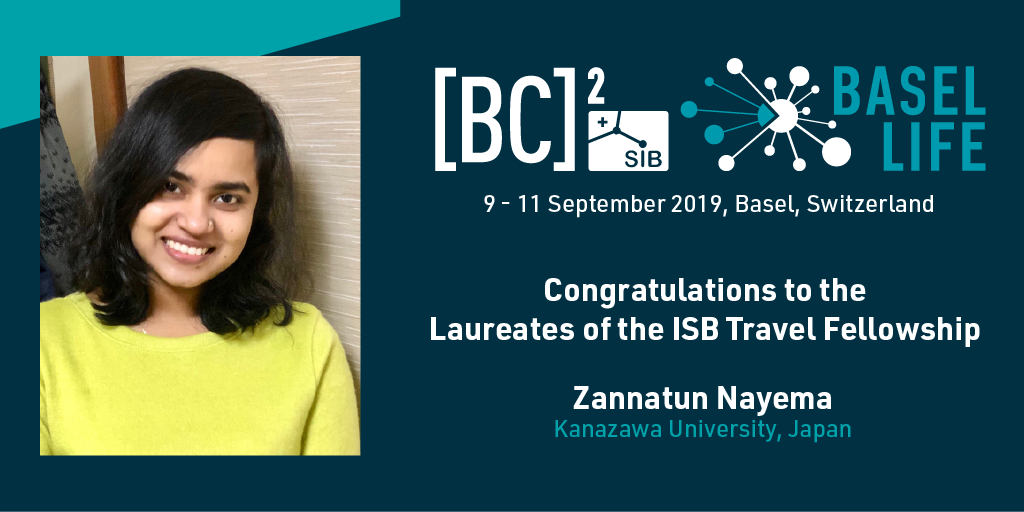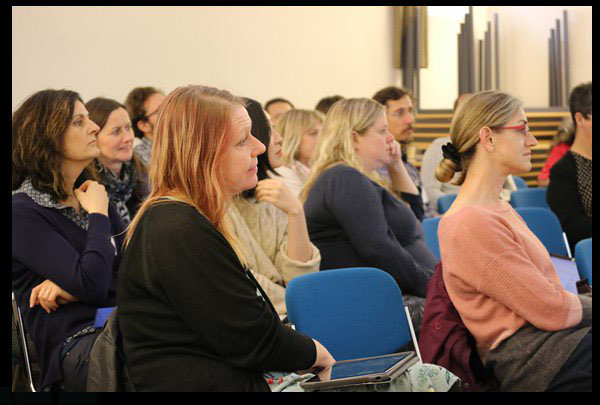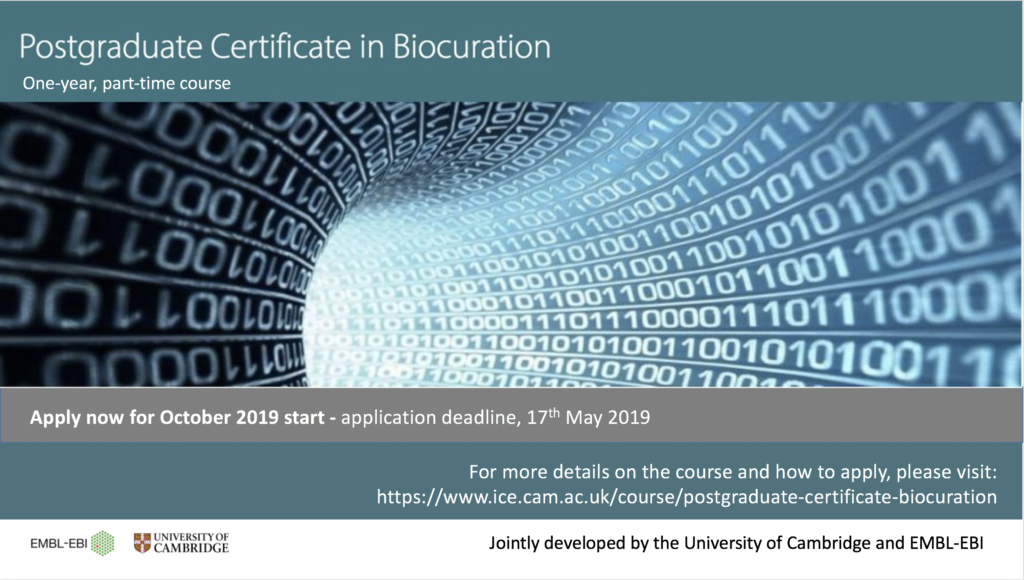GREEKC
The COST Action GREEKC held a workshop inviting community feedback on its work to align efforts to curate, standardize, archive and share information about the regulation of gene expression. A status report was presented by the Work Group leaders, and feedback on the organisation of the next events was received. Some of the feedback that GREEKC needs can still be given through these surveys: “The Work of Curators” and “The Experience of Curators”. One of the main discussion points concerned a re-design of the Sequence Ontology, and a comprehensive set of term requests necessary to annotate the regulatory genome are now being worked on with the SO team (Eilbeck group, Utah). The status of the SO was further discussed with a much wider group of users within the Biocuration community, at an impromptu lunch discussion later during the Biocuration 2019 main event. We hope to be able to present a significantly updated SO at our upcoming workshops, the first week of November 2019.
The IMEx Consortium of Molecular Interaction databases
The IMEx Consortium is a collaboration between interaction databases willing to share data and curation effort. This workshop focused on the coordination and further definition of curation practices. Topics covered were curation coordination tools such as IMExcentral and targeted curation practices, glycan-related physical interactions, nucleic acid-protein interactions and the influence of variation upon interaction outcome. In a joint session with the GREEKC community, transcription factor-target gene interactions and causal relationships were also discussed, developing already active areas of collaboration between the two communities on the representation of this type of data. If you are interested in contributing to the work of IMEx, contact us on intact-help@ebi.ac.uk
Practical ontology applications, tooling and interoperability best practices for FAIRification
This workshop provided an interactive introduction to FAIRification and interoperability best practices in the context of ontology services and semantic web technologies such as the OBO Foundry, ontology service suite at the EMBL-EBI and ELIXIR’s Recommended Interoperability Resources (RIRs). The day started with a general introduction to interoperable data management and FAIR principles before a series of talks and practical demonstrations on resources including the OBO Foundry in general, and specifically OBO core, the single cell expression Atlas (scAtlas), the EMBL-EBI Ontology Tooling Suite and a number of ELIXIR Recommended Interoperability Resources (RIRs) such as FAIRsharing (slides), InterMine and BridgeDb. The workshop concluded with an open-floor discussion on the needs of the biocuration community with respect to FAIR resources and ontologies, and ontology and FAIRification best practice.
Curating Evidence for Gene:Disease Validity for Clinical Omics
Three Gene Curation Coalition (GenCC) member groups (Genomics England PanelApp, ClinGen and Orphanet) presented an overview of their gene curation strategies and focus, leading to dialogue about the merits and challenges of each approach. The conversations reinforced some of the challenges we face in performing manual curation of gene:disease associations, and the rules we have in place to ensure consistent annotation. We reviewed where we could most benefit from incorporating additional ontologies and mappings into our resources, and areas that required further clarity; it quickly became apparent that even the term ‘panel’ can be ambiguous given its different use between resources- are we talking about a panel of genes, or a panel of people? Curators are already familiar with the need for consistent curation terminology, and the workshop provided the perfect opportunity to poll attendees for their views on clinical evidence descriptions. We were then able to demonstrate how the recent efforts of the GenCC to establish consensus terms for validating gene:disease associations will allow us to work together and allow efficient data sharing. Overall we hope that the workshop provided an insight in to the roles and diversity of data curation in the clinical setting.
Equality, Diversity, and Inclusion (EDI)
The introductory slides explained what these terms mean and how they are being embraced by scientific institutes in different countries. This was followed by a more in-depth presentation by the invited speaker Dr Saher Ahmed, head of EDI at the Wellcome Sanger Institute, Cambridge, UK, who discussed gender discrepancies in the workplace, and highlighted some efforts at Sanger to address these issues, such as pay transparency, changes to their leave policies, and creating a family-friendly workplace. The remaining time exchanging views on the gender pay gap, maternity, paternity & carers leave, cultural differences in working practices and accessibility. As an outcome of this workshop, attendees agreed there is a need for the ISB to create an EDI subcommittee and that this workshop should be held at subsequent Biocuration meetings. The EDI subcommittee is currently being formed, and the exact roles are to be defined, but they will address issues including a code of conduct amongst the Society as a whole and at conferences, and accessibility at conferences and for ISB activities.
“Not Everything That Counts Can Be Counted” – how biological resources should be evaluated
As scientific data output continues to grow, biological resources are increasingly critical for data discoverability and re-use. However, many highly-used biological resources find it increasingly difficult to secure and maintain funding. This discordance implies that the value of curated resources to the research infrastructure is still not fully appreciated in the wider scientific community, or that the money saved by curated resources is not fully factored into funding models. In this workshop, we hoped to address questions surrounding this disparity. A short introduction to the issues was provided by Marc Gillespie. A funder’s perspective was provided by David Carr (Wellcome Open Research). Jo McEntyre (EBI, Literature Services, UK) provided an overview of the Elixir indicators designed to evaluate resource quality in a standardized way. Two major priorities emerged from the discussion. Firstly, knowledge bases not only capture data but also synthesize new knowledge. The differences in requirements for evaluating archive and knowledge-base database should be made clearer. Secondly, the need to educate the scientific communit and funding bodies about the hidden work and benefits of data curation is urgently required. Suggestions ideas and recommendations gathered during the conference and post-meeting are documented here, and we encourage curators to add further ideas, with an aim to develop into an ISB position paper during 2019-2020.
Biocuration in Industry
The Biocuration in Industry workshop was organised by Jane Lomax (SciBite) and Yasmin Alam-Faruque (Eagle Genomics) with an aim to discuss the experiences of, and challenges faced by, non-academic biocurators. The workshop attracted ~100 participants, with most coming from academia. The workshop began with short talks from commercial companies, including Nebion, Hoffman-La Roche, Healx and Eagle Genomics, who described their curation pipelines, standards and scientific interests, which included cancer immunotherapy, microbiomes and Parkinson’s disease. A common theme was the use of public standards and ontologies, emphasising the importance of key resources such as MONDO, GO, HPO and MeSH to aid drug discovery and knowledge management. This also came through in the subsequent panel discussion where the panel agreed that, in order to maintain the high-quality of these resources, there is an onus on the commercial sector to contribute back improvements to these open-source efforts. The main challenge for the panel, as in the academic sector, is data cleansing to create high-quality and reproducible datasets for downstream processes. However, this was seen as a valuable, and transferable, skill for biocurators as the biomedical industry increasingly recognises the need for clean data.
The Phenotypes Traversing All the Organisms (POTATO)
The POTATO workshop is part of an ongoing effort to reconcile phenotype ontologies across species. This, the second workshop in the series, brought together 24 curators and ontology developers from a variety of backgrounds including representatives of many important groups in the phenotype curation space: Monarch Initiative, the Alliance of Genome Resources, ZFIN, PomBase, dictyBase, PHIBase, GO, SGD, HPO, FlyBase, MGI, Phenoscape and more. The Phenotype Ontology Reconciliation Effort aims to align phenotype ontologies using a common set of design patterns. These design patterns depend on a variety of external ontologies including the Phenotype and Trait Ontology (PATO) and the multi-species anatomy ontology, Uberon. The workshop included training in editing these two ontologies. It also featured an extended session to develop a strategy to deal with shortcomings and current limitations of PATO and its usage, as identified by the Phenotype Ontology Reconciliation group. During this session, focus groups discussed a number of PATO related issues, including how to improve PATO definitions in general and how to improve PATO representation of increased and decreased amounts (including absence), frequencies and rates. A number of edits to PATO have already been implemented as a result of this work. The results of the discussion are currently being written up as a meeting report, which will guide future improvements to PATO.
Data Licensing Workshop
The data licensing workshop at Biocuration 2019 was focused on helping scientists to understand important factors in the selection of a data license, as well as the implications of that selection on downstream use and reuse. We had a diverse line up of speakers who each shared their unique perspective — data owners, data miners, and a legal expert — followed by a robust discussion among all participants. The goal of the workshop was not to achieve consensus on the “best” license, but rather to share experiences, perspectives, and questions.
Mapping the Landscape of Biocuration
This well attended pre-conference workshop asked questions such as: What is the state of biocuration in 2019? Where are biocurators based? What are their skills and levels of expertise? What training do they need? What are the tools they use? As part of an ELIXIR Implementation Study, members of EMBL-EBI, FAIRsharing.org/Oxford and SIB ran a survey to capture information on biocurators and the resources they run, the life science/health domains they operate in, and their expertise and training requirements. In the workshop we described the current biocuration landscape, and ran an interactive session to compile feedback on career progression and training roadblocks. Slides from the workshop can be found here: Survey: 10.7490/f1000research.1116798.1; FAIRsharing: 10.7490/f1000research.1116785.1; TeSS: 10.7490/f1000research.1116784.1). More information on the Implementation Study and follow-up work can be found here: https://elixir-europe.org/about-us/implementation-studies/mapping-biocuration





